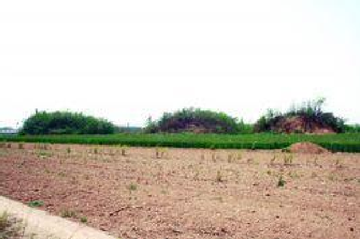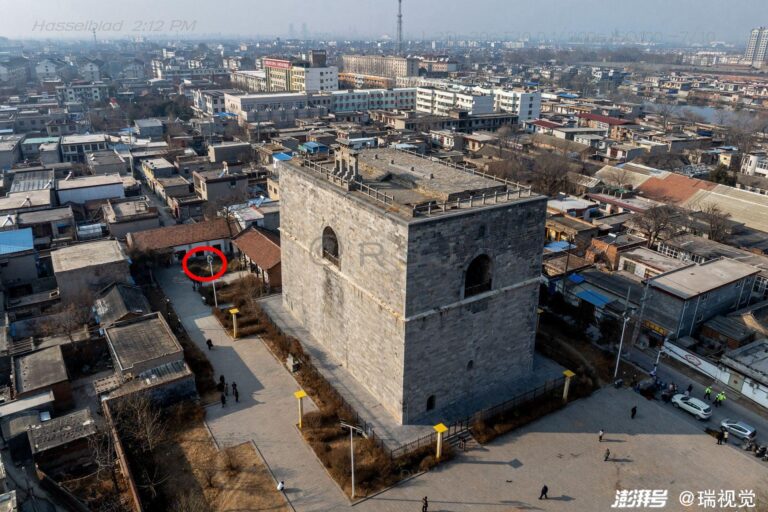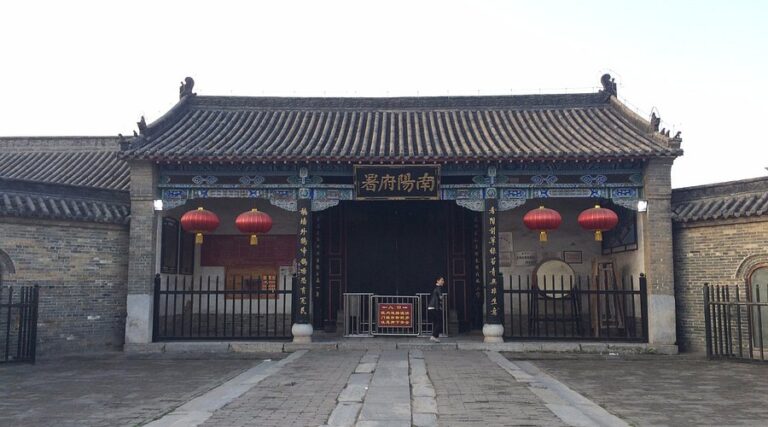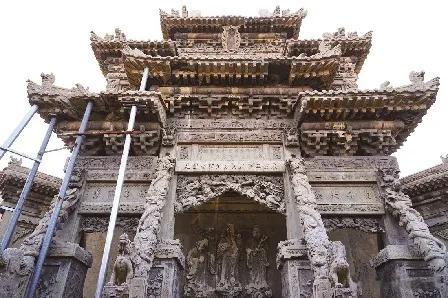Discover the Hidden Gem of Jinhua Jiqingtang: A Must-Visit in Zhejiang
An Essential Guide to Visiting Jinhua Jiqingtang
In This Guide
- An Essential Guide to Visiting Jinhua Jiqingtang
- The Rich History of Jinhua Jiqingtang
- Main Highlights: What to See at Jinhua Jiqingtang
- Planning Your Visit: A Practical Guide
- Tickets, Hours, and Booking
- How to Get There
- Local Cuisine and Accommodation
- Frequently Asked Questions
- Final Thoughts on Your Trip
Nestled in the picturesque landscape of Jinhua, Zhejiang Province, Jinhua Jiqingtang (积庆堂) stands as a testament to the rich cultural heritage of the region. This historic site, dating back to the Qing Dynasty, is located in the quaint village of Lifu within the scenic Shuangxi Township. With its designation as a protected cultural relic in 2001, Jiqingtang not only draws attention from history enthusiasts but also serves as a window into the traditions and architectural styles of ancient China.
The charm of Jiqingtang is enhanced by its serene surroundings, where lush greenery and clear streams create a tranquil retreat from the hustle and bustle of modern life. The nearby Lifu Village, with its charming natural beauty, is home to several other historical sites, making it an ideal destination for those seeking to explore the depths of Chinese culture. Visitors can wander through the village’s ancient pathways, witness the intricate designs of traditional architecture, and immerse themselves in the peaceful ambiance that has been preserved for centuries.
As you embark on your journey to Jinhua Jiqingtang, prepare to be captivated by the stories etched in its walls and the serene beauty that envelops this extraordinary site. Whether you are a history buff, a culture seeker, or simply looking for a scenic getaway, Jiqingtang promises an unforgettable experience that beautifully encapsulates the essence of China’s rich heritage.
The Rich History of Jinhua Jiqingtang
Nestled in the picturesque village of Liwu within the Shuangxi Township of Jinhua, Jiqingtang, or the Hall of Accumulated Celebration, boasts a rich history dating back to the Qing Dynasty. Constructed in the 18th century, the hall has long been a center of cultural significance for the local community. In August 2001, it was officially designated a protected cultural relic by the Pan’an County government, underscoring its importance as a historical landmark.
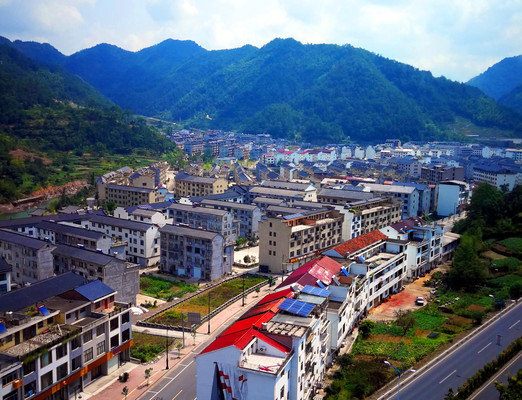
Jinhua Jiqingtang.
Liwu Village itself is characterized by its lush greenery and serene landscapes, with a charming stream meandering through the area. This idyllic setting has attracted visitors and scholars alike, drawn to its vibrant historical narrative and the remnants of ancient architecture. Alongside Jiqingtang, the village is home to several other culturally significant sites, including Xianghe Hall and Shude Hall, which all contribute to the rich tapestry of heritage that defines this region.
Jiqingtang serves not only as a historical site but also as a testament to the values and traditions of the Qing era. It reflects the architectural style and social customs of the time, making it a valuable resource for understanding the local culture and history. The intricate designs and craftsmanship found within the hall showcase the artistic talents of the period, while its function as a gathering space emphasizes the community-oriented lifestyle prevalent among the villagers.
Visitors to Jinhua and its surrounding areas will find that Jiqingtang is more than just a relic of the past; it is a living reminder of the region’s rich history, encapsulating the essence of local customs and the enduring legacy of its ancestors. The hall continues to be a focal point for cultural activities and heritage preservation efforts, ensuring that the stories of generations past remain vibrant for future visitors to explore and appreciate.
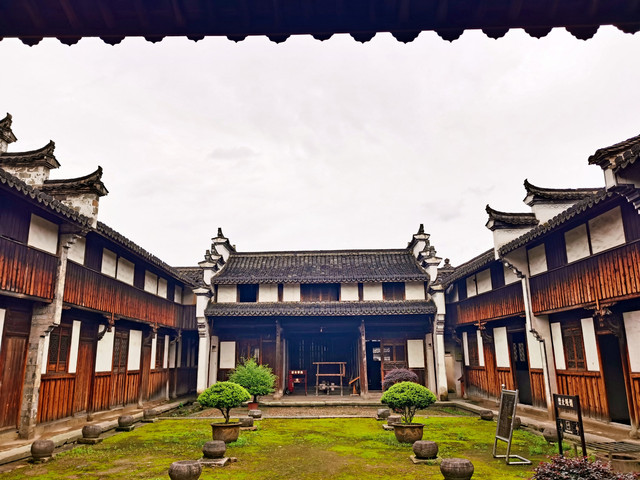
Jinhua Jiqingtang.
Main Highlights: What to See at Jinhua Jiqingtang
Nestled in the picturesque village of Lifu in Jinhua, Jiqingtang (积庆堂) is a remarkable testament to the rich cultural heritage of the Qing Dynasty. This historic structure, designated as a protected cultural relic in 2001, offers visitors a unique glimpse into the architectural styles and social customs of ancient China.
Jiqingtang is renowned for its stunning craftsmanship and intricate designs that are emblematic of traditional Chinese architecture. The building features ornate wooden carvings and decorative motifs that depict various themes from Chinese mythology and folklore. As you walk through its halls, you’ll be captivated by the artistry that brings to life centuries of history.
The surrounding Lifu village enhances the experience, offering a serene environment with lush greenery, ancient trees, and a charming stream that meanders through the area. The village is not just a backdrop; it boasts its own historical sites, including other preserved structures like Xianghe Hall and Shude Hall, making it a perfect spot for cultural exploration.
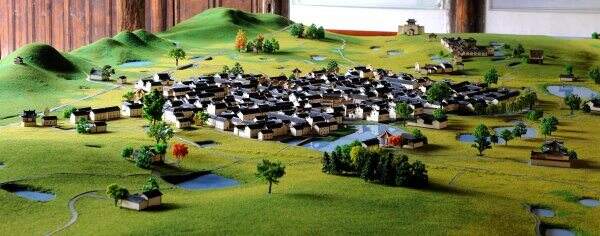
Jinhua Jiqingtang.
For those interested in the natural beauty of the region, the nearby scenic spots such as Yunzhong Rock and Lunquan Scenic Area provide stunning landscapes and opportunities for outdoor activities. The area is rich with hiking trails and breathtaking views, making it ideal for nature lovers and photographers.
Visiting Jiqingtang is not just about seeing a building; it’s an immersive journey into the past, where you can appreciate the harmony between nature and architecture, and understand the significance of cultural preservation. Whether you are a history enthusiast, an architecture buff, or simply seeking a peaceful escape, Jiqingtang and its surroundings promise an enriching experience.
Planning Your Visit: A Practical Guide
Jinhua Jiqingtang (积庆堂) is not just a historical landmark but a vibrant reflection of traditional Chinese culture, nestled in the picturesque village of Lifu, located within the renowned Pan’an County in Zhejiang Province. This practical guide aims to provide essential information for travelers interested in exploring this unique heritage site.
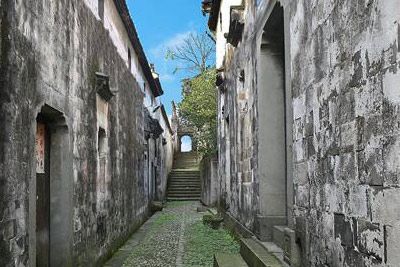
Jinhua Jiqingtang.
Getting There
Location: Jiqingtang is situated in Lifu Village, which is approximately 5 kilometers from the administrative center of Shimu Village in Shuangxi Township.
Transportation:
– By Car: If you’re driving, take the G330 National Road towards Pan’an County, and follow the signs to Shuangxi Township. The roads are well-maintained, and the drive offers scenic views of the surrounding countryside.
– By Public Transport: Buses frequently depart from Jinhua city to Pan’an. Once you reach Pan’an, local transportation options like taxis or shared rides can take you to Lifu Village.
Best Time to Visit
The ideal time to explore Jiqingtang is during the spring and autumn months (April to June and September to November), when the weather is mild and the natural scenery is at its most beautiful.
What to Expect
Historical Significance:
Jiqingtang dates back to the Qing Dynasty and has been recognized as a cultural heritage site since 2001. Its architecture exemplifies traditional Chinese design, characterized by intricate wooden carvings and beautiful murals that tell the story of the Zhuge family lineage, descendants of the famous strategist Zhuge Liang.
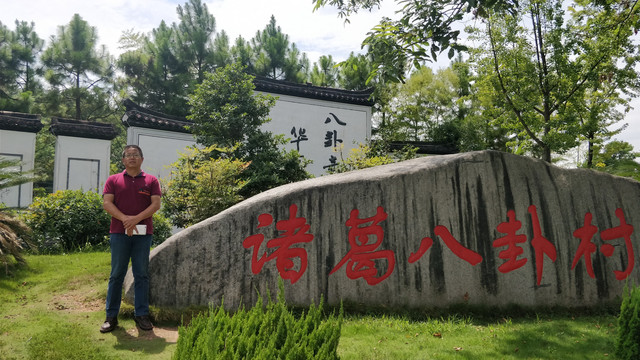
Jinhua Jiqingtang.
Architectural Highlights:
– Main Hall: The central hall of Jiqingtang is impressive, with high ceilings and ornate decorations. The hall serves as a shrine to Zhuge Liang, adorned with statues and historical artifacts.
– Surrounding Buildings: The complex includes several other halls and pavilions that reflect the architectural style of the era, providing insight into ancient Chinese familial and cultural practices.
Nearby Attractions
While visiting Jiqingtang, consider exploring other cultural and natural attractions in the vicinity:
– Xianghe Hall: Another preserved historical building in Lifu Village, showcasing similar architectural styles.
– Cloudy Rock Scenic Area: A beautiful natural reserve nearby that offers hiking trails and stunning views of the landscape.
– Pan’an Flower Stream: Known for its picturesque scenery, ideal for a leisurely stroll or picnic.
Tips for Visitors
- Guided Tours: Consider joining a guided tour for in-depth knowledge of the site’s history and significance. Local guides can provide valuable insights that enhance your experience.
- Photography: The intricate details of the architecture and the surrounding natural beauty make for excellent photography opportunities. Be respectful of the site and other visitors while taking photos.
- Local Cuisine: Don’t miss the chance to try local delicacies in nearby eateries. Zhejiang cuisine is renowned for its freshness and variety, with dishes that often make use of local ingredients.
Accommodation
For a more immersive experience, consider staying in guesthouses or small hotels in Lifu Village or nearby Pan’an. These accommodations often provide a warm and welcoming atmosphere, allowing you to experience local culture firsthand.
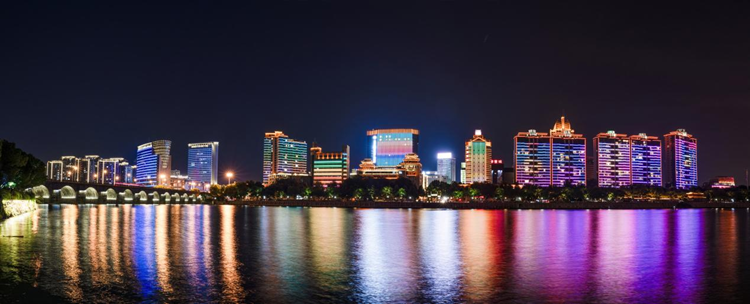
Jinhua Jiqingtang.
Conclusion
Jinhua Jiqingtang offers a unique glimpse into the rich tapestry of Chinese history and culture. Whether you’re a history buff, architecture enthusiast, or simply looking for a peaceful escape, this heritage site promises to captivate your heart and mind. Make sure to plan your visit thoughtfully, allowing ample time to soak in the beauty and significance of this remarkable location.
Tickets, Hours, and Booking
Visiting Jinhua Jiqingtang (积庆堂) offers a unique glimpse into the rich history and culture of the region. Here’s what you need to know about tickets and entry:
Ticket Information
-
Admission Fee: Entry to Jinhua Jiqingtang is free of charge, making it accessible for all visitors interested in exploring this cultural heritage site.
-
Opening Hours: The site is open throughout the week, allowing flexibility for visitors. It is advisable to check local listings for any updates on operating hours before your visit.
-
Guided Tours: While admission is free, consider joining a guided tour for a deeper understanding of the historical significance and architectural features of Jiqingtang. Tour services may vary, so it’s best to inquire locally or at visitor information centers.
-
Best Time to Visit: Jinhua Jiqingtang is particularly beautiful during the spring and autumn months when the weather is mild. Weekdays tend to be less crowded compared to weekends, which can enhance your experience.
-
Accessibility: The site is located in Lifu Village, which is accessible by various modes of transportation, including public buses and taxis. Be sure to plan your route in advance for a smooth journey.
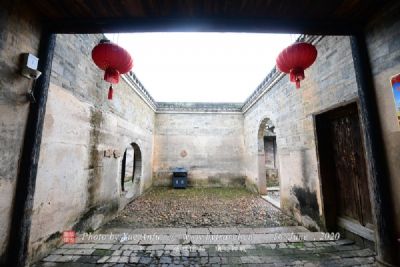
Jinhua Jiqingtang.
Tips for Visitors
-
Photography: Capture the stunning architecture and surrounding landscapes, but be respectful of any guidelines regarding photography, especially if you encounter any ongoing ceremonies or events.
-
Local Attractions: Consider exploring nearby sites after your visit to Jiqingtang, such as other historical halls in the area or the beautiful natural scenery that surrounds Lifu Village.
With no ticket costs, visiting Jinhua Jiqingtang is an enriching experience that allows you to delve into the historical tapestry of the region without breaking the bank. Enjoy your journey through history!
How to Get There
Getting to Jinhua Jiqingtang (积庆堂) is relatively straightforward, thanks to its strategic location in Jinhua, Zhejiang province. Here’s a practical guide to assist you in planning your journey.
By Air
The nearest major airport is Yiwu Airport (YIW), approximately 50 kilometers away from Jinhua. This airport offers domestic flights to major cities across China. From the airport, you can take a taxi or pre-arranged shuttle service to reach Jinhua city, which will take about 40 minutes.
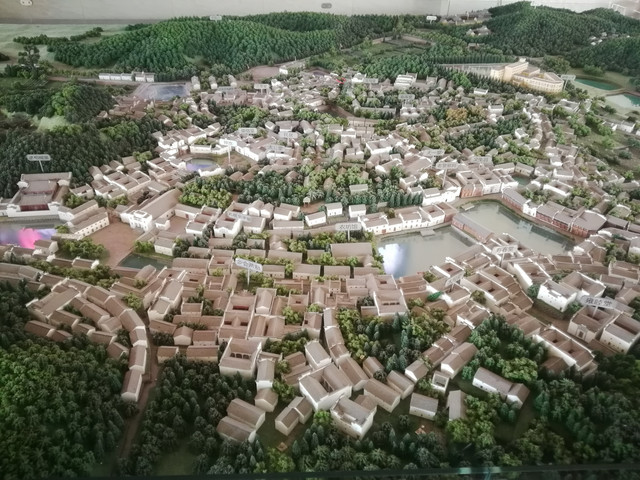
Jinhua Jiqingtang.
Alternatively, Hangzhou Xiaoshan International Airport (HGH) is around 150 kilometers away and provides a wider range of international and domestic flights. From Hangzhou, you can take a high-speed train to Jinhua, which typically takes about an hour.
By Train
Jinhua is well-connected by train, making it convenient for travelers arriving from various parts of China. The Jinhua Railway Station is a key stop along the high-speed rail network, offering frequent services from cities like Shanghai, Hangzhou, and Beijing. The high-speed train is not only fast but also comfortable, with tickets typically ranging from economical to premium classes.
Once you arrive at Jinhua Railway Station, you can take a taxi or use ride-hailing apps to reach Jinhua Jiqingtang, which is about 10 kilometers away.
By Bus
For those preferring road travel, long-distance buses connect Jinhua with various cities in Zhejiang and neighboring provinces. The Jinhua Long-distance Bus Station operates several routes, making it easy to catch a bus to or from nearby towns and cities. Buses are generally affordable and a scenic way to experience the region.
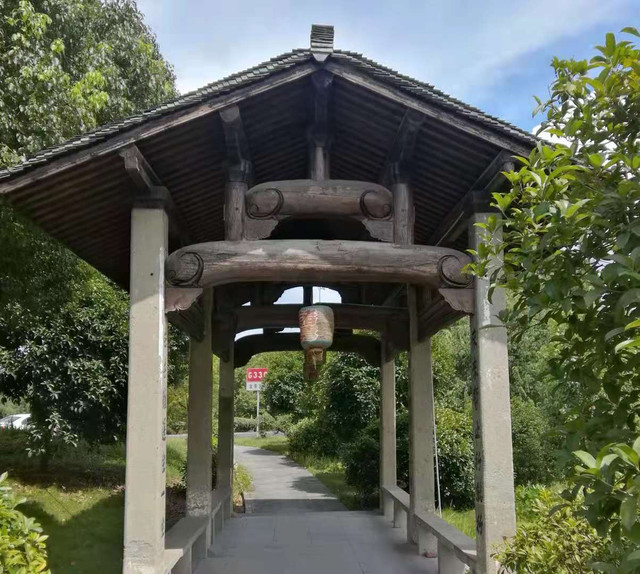
Jinhua Jiqingtang.
Local Transportation
Once in Jinhua, local transportation options include taxis, public buses, and ride-sharing services. Taxis are readily available and can be hailed on the street or booked via apps. Public buses are a cost-effective way to navigate the city, with various routes serving key areas, including Jinhua Jiqingtang.
Directions to Jinhua Jiqingtang
Jinhua Jiqingtang is located in Shuangxi Township, approximately 5 kilometers northwest of the Shuangxi government office in the Liufu Village area. If you’re taking a taxi or using a ride-hailing app, simply provide the driver with the destination name, and they should be familiar with it.
For those who prefer a more cultural experience, consider renting a bicycle to explore the picturesque surroundings of Liufu Village, where you can enjoy stunning landscapes, ancient trees, and the serene ambiance of the area.
Conclusion
With multiple transportation options available, reaching Jinhua Jiqingtang is convenient for travelers. Whether you choose to fly, take the train, or hop on a bus, you’ll find that the journey to this historical site is as rewarding as the destination itself.
Local Cuisine and Accommodation
When visiting Jinhua Jiqingtang, a historical site nestled in the picturesque village of Lifu, you’ll find plenty of culinary delights and accommodation options that enhance your experience in this charming region of Zhejiang Province.
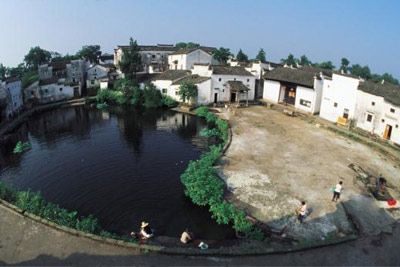
Jinhua Jiqingtang.
Culinary Delights
Jinhua is renowned for its rich culinary heritage, and you’ll want to indulge in local specialties during your visit. Here are some recommendations:
-
Jinhua Ham (金华火腿) – A delicacy that is synonymous with the region, this dry-cured ham is known for its rich flavor and is often used in various dishes. Try it in stir-fries or as a standalone appetizer to appreciate its nuanced taste.
-
Dongyang Wood Carvings Meal (东阳木雕餐) – Experience meals served in beautifully carved wooden dishes, a nod to the region’s famous woodcraft. Many local eateries embrace this tradition, offering both aesthetic and flavorful dining.
-
Pan’an Pancakes (磐安卷饼) – These thin pancakes, often stuffed with savory fillings like vegetables and meats, are a must-try for a quick snack or a light meal. Look for street vendors or casual eateries that serve them fresh.
-
Traditional Tea (东白茶) – Pair your meals with a cup of Dongbai tea, a local specialty known for its fragrant aroma. Many tea houses in the area offer tastings, allowing you to learn about the tea-making process while enjoying its refreshing qualities.
-
Local Snacks – Don’t miss out on street food such as the Yiwu Meat Pie (义乌肉饼) and various types of dumplings. These are perfect for sampling a variety of flavors in a casual setting.
Accommodation Options
After a day of exploration, you’ll need a comfortable place to rest. Here’s a selection of accommodations that cater to different preferences:
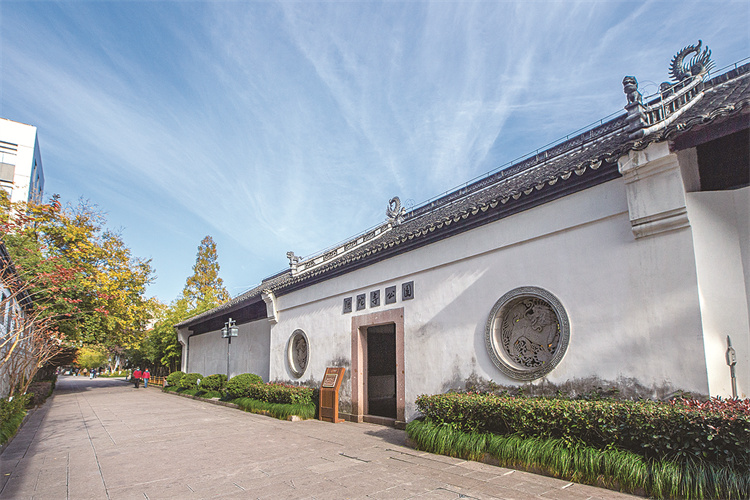
Jinhua Jiqingtang.
-
Heritage Guesthouses – Experience the traditional charm of Jinhua by staying in a heritage guesthouse. These establishments often feature classic architecture and decor, providing a cozy atmosphere that reflects the local culture. Look for places that offer home-cooked meals for an authentic taste of the region.
-
Boutique Hotels – For those seeking modern comforts, boutique hotels in the area offer stylish rooms and high-end amenities, along with personalized service. Some offer scenic views of the surrounding countryside, making your stay even more special.
-
Hostels – Budget travelers will find several hostels that provide a friendly and communal atmosphere. These are perfect for meeting fellow travelers and sharing tips on local attractions and dining spots.
-
Farm Stays – For a more immersive experience, consider a farm stay in the nearby countryside. This option allows you to connect with nature and enjoy homegrown meals straight from the farm.
-
Luxury Resorts – If you prefer a more lavish experience, there are luxury resorts in the vicinity that offer spa services, fine dining, and beautiful natural settings. These resorts are ideal for relaxation after a day of sightseeing.
Whether you’re savoring local delicacies or unwinding in a cozy accommodation, Jinhua Jiqingtang offers a delightful blend of culture, history, and culinary experiences that will make your visit truly memorable.
Frequently Asked Questions
-
What is Jinhua Jiqingtang (积庆堂)?
Jinhua Jiqingtang is a historic building located in the picturesque Lifu Village of Pan’an County, Zhejiang Province, China. It dates back to the Qing Dynasty and was designated as a cultural heritage site in 2001. -
How do I reach Jinhua Jiqingtang?
Jinhua Jiqingtang is accessible by road and is situated approximately 5 kilometers from the central government of Shimu Village. Visitors can reach the site via local transportation options or by driving, as the area has convenient road access. -
What are the opening hours for Jinhua Jiqingtang?
Jinhua Jiqingtang typically opens to visitors during daylight hours. It is advisable to check locally for the specific opening times, especially during national holidays or special events. -
Is there an entrance fee to visit Jinhua Jiqingtang?
Currently, there is no entrance fee for visiting Jinhua Jiqingtang. However, donations for the preservation of the site may be welcomed. -
What can I expect to see at Jinhua Jiqingtang?
Visitors to Jinhua Jiqingtang can explore its well-preserved architecture that reflects traditional Qing Dynasty styles. The surrounding natural beauty of Lifu Village, including ancient trees and a crystal-clear stream, adds to the serene atmosphere. -
Are there any nearby attractions worth visiting?
Yes! Jinhua Jiqingtang is located near several scenic spots, including Xianghe Hall, Shude Hall, and the Yunzhong Rock Scenic Area. These locations offer beautiful views and historical insights, making them great additions to your itinerary. -
Is Jinhua Jiqingtang suitable for families and children?
Absolutely! Jinhua Jiqingtang provides a peaceful and educational environment that is suitable for families. Children will enjoy exploring the open space and learning about the history and culture of the region. -
What should I bring when visiting Jinhua Jiqingtang?
It’s recommended to wear comfortable walking shoes, bring water, and perhaps a camera to capture the beautiful scenery. Additionally, having a local guide or a map can enhance your experience by providing context to the historical significance of the site.
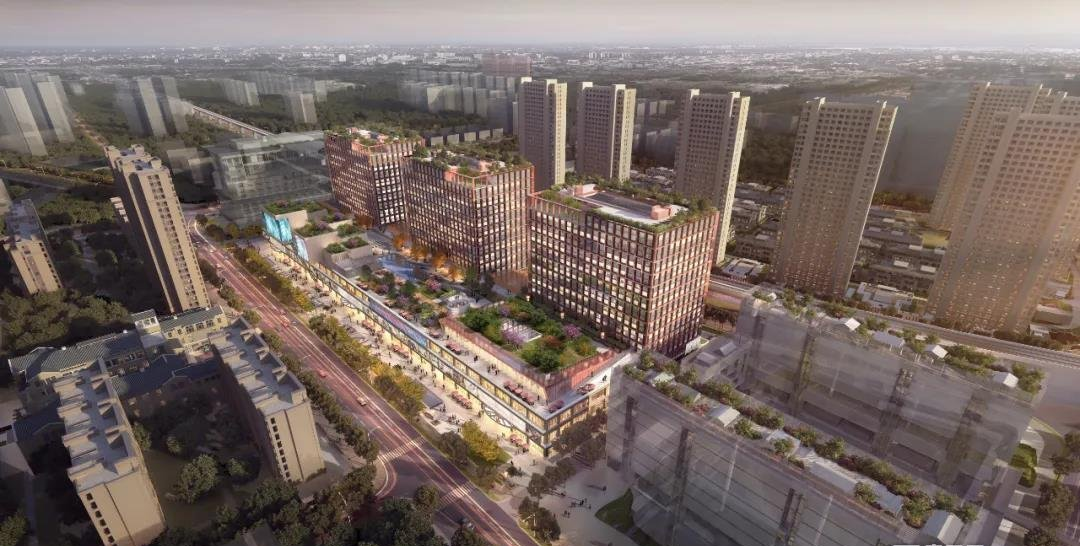
Jinhua Jiqingtang.
Final Thoughts on Your Trip
Visiting Jinhua Jiqingtang is not just a journey through history; it is a deep dive into the rich tapestry of Chinese culture and heritage. This remarkable structure, steeped in the traditions of the Qing Dynasty, offers a unique glimpse into the architectural brilliance and familial values that have stood the test of time. As you wander through its halls and gardens, you’ll find yourself enveloped in a sense of tranquility, surrounded by the beauty of nature and the echoes of the past.
The village of Jiqingtang, with its lush landscapes and serene waterways, further enhances the experience, inviting travelers to slow down and appreciate the simple joys of life. From the intricate carvings that adorn the buildings to the vibrant community spirit, every corner tells a story waiting to be discovered.
As you reflect on your visit, consider the lessons embedded within these walls: the importance of family, the wisdom of tradition, and the beauty of nature. Jinhua Jiqingtang is not merely a destination; it is a reminder that in our fast-paced world, there is profound value in pausing to honor our roots and cherish our connections. Whether you are an avid historian, an architecture enthusiast, or simply seeking a peaceful retreat, this hidden gem promises an enriching experience that lingers in the heart long after you leave.
